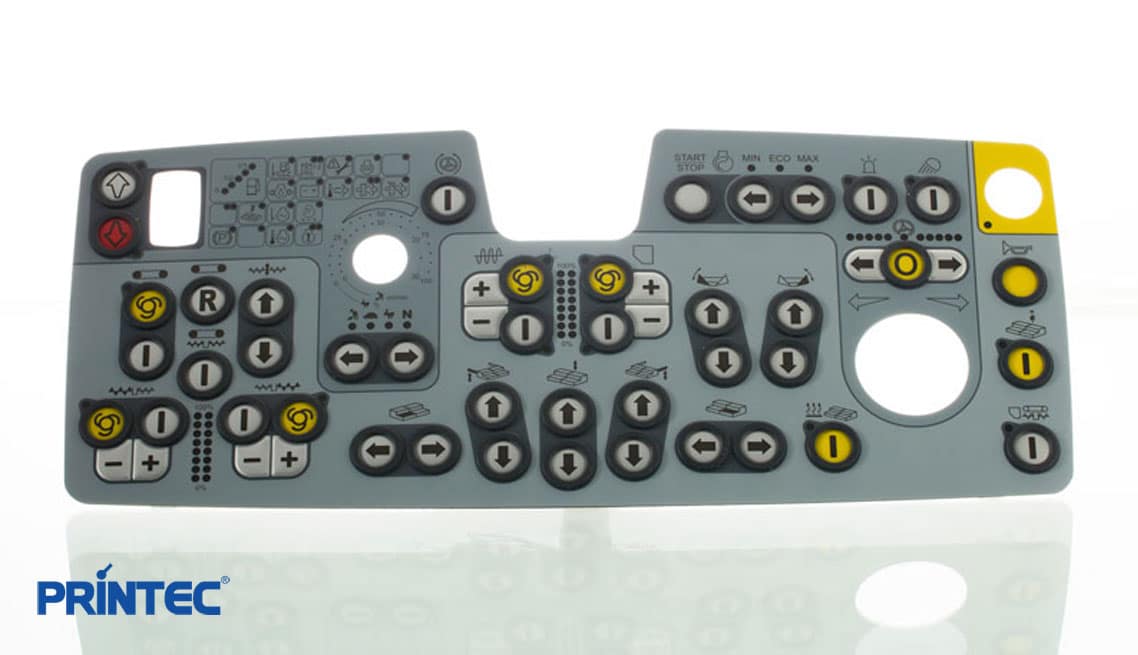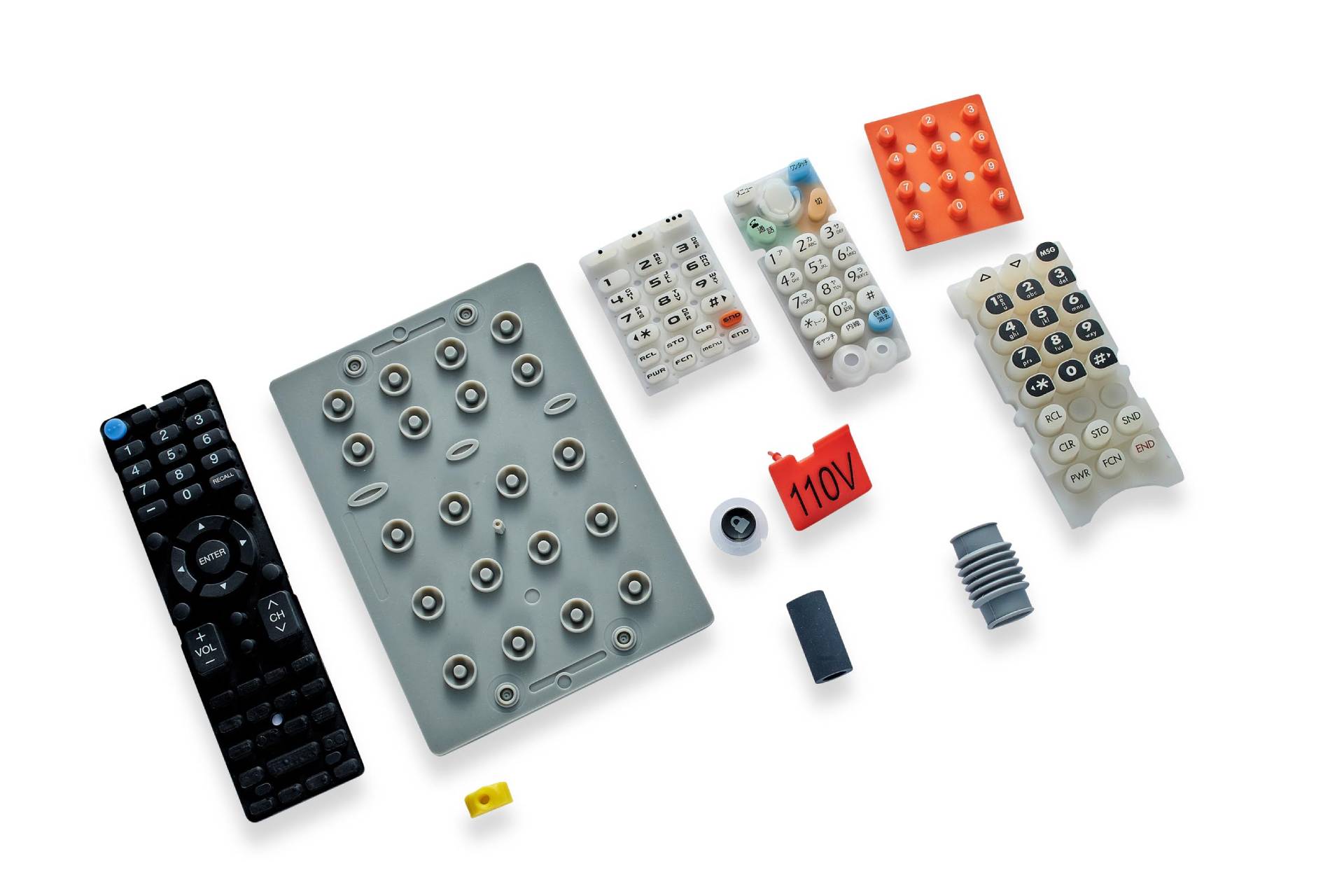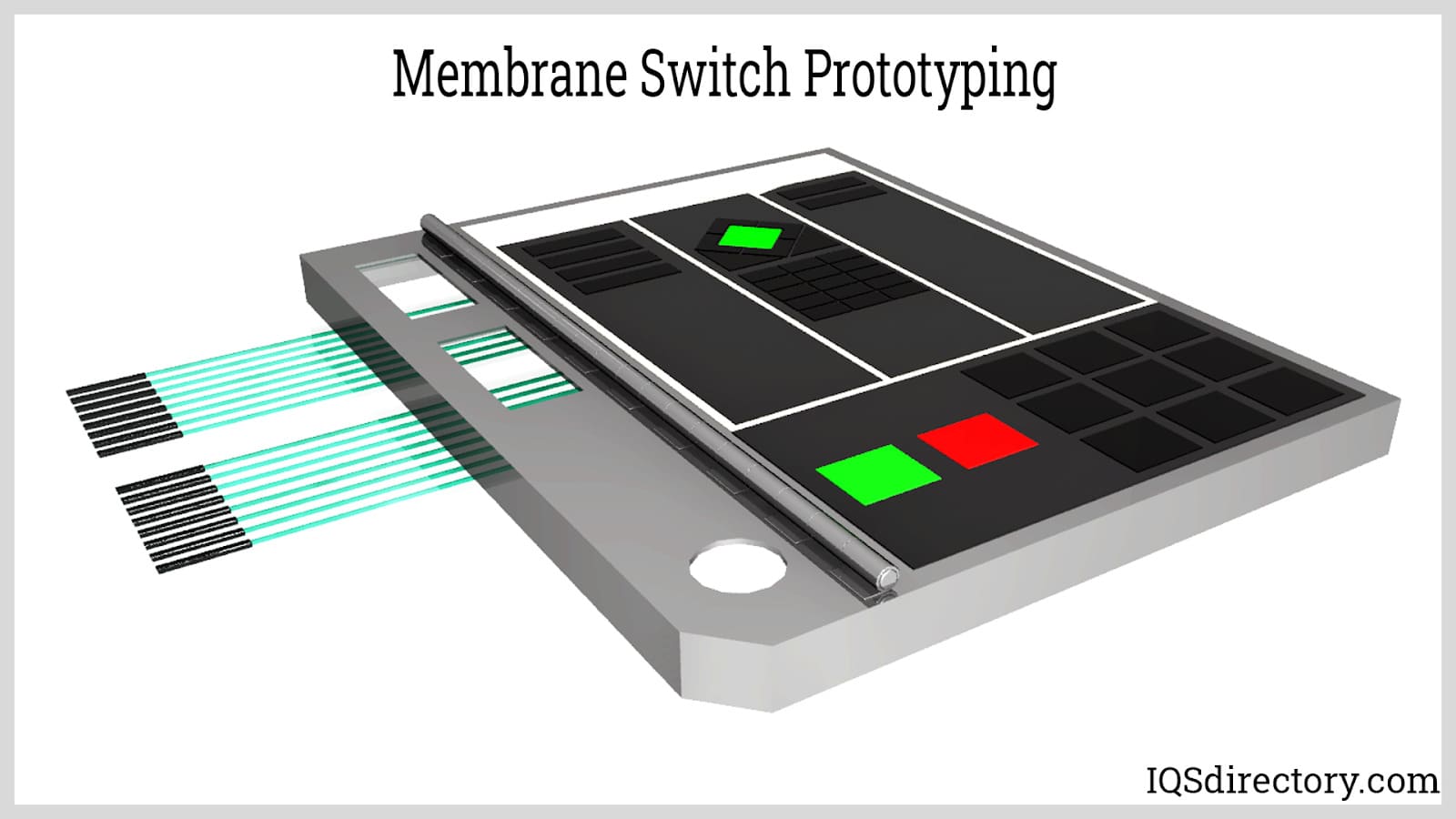Every profitable product line begins with partnering with the right membrane switch manufacturer early on.
Every profitable product line begins with partnering with the right membrane switch manufacturer early on.
Blog Article
Everything About Membrane Switch Over: Understanding Its Design and Performance
When you consider the control interfaces in modern-day devices, membrane layer buttons typically come to mind. These parts are much more than just switches; they blend design and functionality effortlessly. Comprehending exactly how they work and what makes them effective can change your perspective on everyday electronic devices. There are subtleties to their layout and performance that you may not be conscious of. Let's discover what collections membrane layer switches over in addition to other control systems.
What Are Membrane Buttons?

Membrane switches can also be personalized concerning form, dimension, and graphics, allowing makers to produce special user interfaces customized to particular items. On the whole, membrane layer buttons play a considerable function in improving individual experience throughout a broad selection of applications.
Exactly How Membrane Switches Over Job
When you press a trick on a membrane layer switch, it activates an uncomplicated yet effective system. membrane switch manufacturer. The top layer, frequently made of adaptable material, pushes down onto a conductive layer below it.
You'll observe that the tactile responses varies based upon the button style, using either a soft click or an extra obvious action. When you release the key, the membrane layer go back to its initial setting, reopening the circuit and stopping the signal. This process occurs virtually instantly, guaranteeing a receptive customer experience.
Membrane layer buttons are popular due to their toughness and resistance to dust and dampness, making them ideal for various applications, from family devices to clinical gadgets. Comprehending this procedure assists you value their prevalent use.
Trick Elements of Membrane Layer Switches
Understanding the essential parts of membrane buttons is basic for comprehending their functionality and design. At the core, you'll locate the visuals overlay, which supplies the aesthetic interface for individuals. Below that, there's a spacer layer that divides the circuit layers, ensuring that they do not make call until pressed. The circuit layer is where the magic occurs; it is composed of conductive traces that complete the circuit when you push the switch. One more necessary component is the adhesive support, permitting the switch to adhere to surfaces safely. The safety layer guards against environmental elements and put on, expanding the switch's life-span. Each component plays a considerable role in making sure dependable efficiency and individual interaction. By comprehending these components, you'll acquire insight into just how membrane layer switches operate and their relevance in different applications.
Products Used in Membrane Switch Over Style
The performance and toughness of membrane switches over heavily depend on the materials used in their style. You typically experience polyester and polycarbonate as key substrates because of their exceptional toughness and adaptability. These products withstand scratches and chemicals, making them suitable for requiring settings.
The conductive layers commonly utilize silver or carbon, picked for their dependability and conductivity. membrane switch manufacturer. Silver offers remarkable efficiency, while carbon is an economical alternative. For the overlay, you may think about a matte or glossy surface, depending upon your aesthetic needs and user experience
Adhesives play an essential duty as well; they bond layers safely and assure long life. Ensure to select adhesives that endure environmental elements like temperature and moisture. Lastly, don't forget the importance of a good printing method for graphics, as it improves both performance and aesthetic allure. Picking the right products will assure your membrane switch stands the examination of time.
Design Factors To Consider for Membrane Switches
While designing membrane buttons, it's vital to take right into account different factors that affect their performance and individual experience. Begin by concentrating on the design and switch dimension; make certain they're intuitive and very easy to browse.
Confirm your design fits ecological aspects, like moisture or temperature variants, which can influence efficiency. By carefully thinking about these aspects, Website you'll develop a membrane layer button that boosts use and contentment.
Applications of Membrane Layer Switches
Membrane switches are versatile elements located in different applications, from commercial tools to customer electronic devices. You'll see their effect in machines that require sturdy user interfaces and in tools that gain from smooth layouts. Comprehending these applications assists you value the performance and functionality of membrane layer switches in everyday innovation.
Industrial Devices Usage
When you're looking to boost the performance of commercial devices, membrane switches supply a trustworthy service that combines longevity with easy to use style. These switches are excellent for extreme atmospheres, offering resistance to dust, dampness, and chemicals. You'll find them in control panels for making makers, a/c systems, and medical devices, where accuracy and responsiveness are crucial. Their reduced profile suggests they fit effortlessly into different devices, saving valuable room while keeping convenience of usage. With personalized graphics and backlighting choices, you can create an user-friendly user interface for operators, enhancing performance and safety and security. And also, their lengthy lifespan minimizes maintenance prices, making them a smart investment for your commercial applications. Accept membrane layer switches to simplify your operations and improve total performance.
Consumer Electronics Assimilation
In the domain name of consumer electronic devices, membrane switches play an important role in enhancing user interaction and gadget functionality. Membrane layer switches likewise guarantee sturdiness and resistance to dirt and moisture, expanding the lifespan of your electronic devices. By choosing membrane layer switches, you improve not simply the performance however additionally the style of your gadgets, making daily communications smooth and pleasurable.
Benefits and Drawbacks of Membrane Layer Switches
While membrane buttons provide an array of benefits, they also come with some downsides that you ought to consider. One considerable advantage is their small design, making them ideal for space-constrained applications.

Membrane switches can have a much shorter life-span compared to mechanical buttons, especially under heavy usage. They can likewise be less responsive, which might affect individual feedback throughout procedure. Balancing index these pros and disadvantages will certainly assist you identify if membrane switches are the best fit for your job.
Often Asked Concerns
How Much Time Do Membrane Layer Switches Over Typically Last?
Membrane layer changes normally last in between 5 to ten years, depending upon use and environmental conditions. You'll want to evaluate factors like wear, exposure to wetness, and temperature level changes to gauge their longevity effectively.
Can Membrane Switches Be Customized for Details Layouts?
Yes, you can tailor membrane layer buttons to fit certain designs (membrane switch manufacturer). You'll have the freedom to pick colors, forms, and formats that match your job's demands, ensuring they mix flawlessly with your general aesthetic
What Is the Expense Array for Membrane Layer Change Manufacturing?
The cost variety for membrane button manufacturing usually falls in between $1 and $10 per device, depending upon elements like layout intricacy, quantity, and products. You can obtain quotes from producers to find the ideal choice.

Are Membrane Changes Water Resistant or Resistant?
Membrane layer buttons can be developed to be waterproof or immune, relying on materials used and building and construction approaches. If you need them for damp settings, guarantee you define those demands during the design process.
How Do Membrane Layer Switches Compare to Standard Switches?
Membrane layer look here buttons are normally thinner and more flexible than conventional switches, supplying a streamlined design. They're usually much easier to clean and incorporate, however might not offer the tactile comments you're utilized to with mechanical choices.
Final thought

Report this page